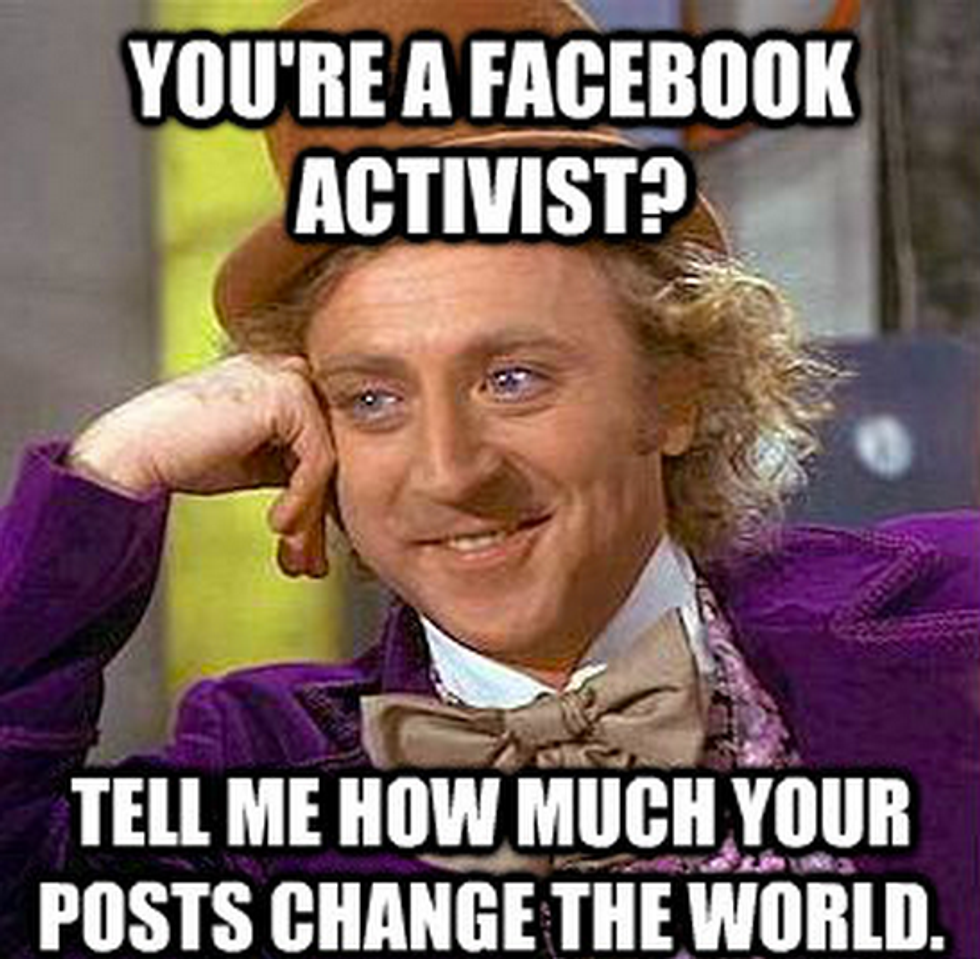Social justice is justice in terms of distribution of wealth, opportunities, and privileges and society. It is the view that everyone deserves equal political, economic, and social rights and opportunities. This entails promoting a just society by challenging injustice and oppression and celebrating diversity. Social justice is tolerance, freedom and equality regardless of race, sexual orientation, gender, disability or anything that differentiates members of society.
Social justice stems from the belief that all people have basic human rights. As an American, I have been raised with the firmly held belief that all people have basic rights to life, liberty and the pursuit of happiness. Social justice is the movement that works to provide these rights to others and to overcome the inequities of society.
There is a difference between working to make everything equal for all people and working to make everything fair. Social justice isn't communist. It doesn't mean everyone gets the same rewards regardless of how hard they work. It means acknowledging that some members of society do not have access to the same opportunities and rights as others, and working to remove barriers to those opportunities.
As such, not all inequalities are necessarily bad. Inequalities are unjust only when they restrict people from sharing in the rights and freedoms to which they are entitled, like health, liberty and access to opportunities. This entails also caring for the least advantaged in society, those who are disabled or impoverished and, as such, do not have access to the same rights and privileges that other members of society do.
While religious beliefs are not necessary for the practice of social justice, many religious institutions have strong social justice movements that go even further than what I have described. Most religions advocate for caring for less fortunate members of society, and some even have mandates of service as part of religious practice.
Social justice is many things. Some of the major social justice movements involve civil rights activism, feminism, religious freedoms and working to provide for the poor. In all social justice movements, people work to better society through making it a more fair, accessible and tolerant place to all.
Social justice is not slacktivism, and it is not online trolling.
Slacktivism, as shown by the Kony 2012 viral movement is when people think that sharing a post on Facebook or in other ways generating Internet buzz is a form of activism. While creating awareness is a vital part of social justice, true change requires action. Activism requires action. This means doing more for a cause than simply sharing it on social media. That is not enough. It means going out and making a tangible difference in your society wherever there is injustice.
Social justice is not trolling on the Internet telling others to "check their privilege." It is not adding to the hatefulness that already exists online by becoming a social justice warrior. It is not being more focused on how you can correct others than on how you can tangibly respond. Social justice requires real action and being informed. It stems from a place of acknowledging all people as humans worthy of the same rights and privileges that other members of society possess. It means going out into the world and effecting change.



















